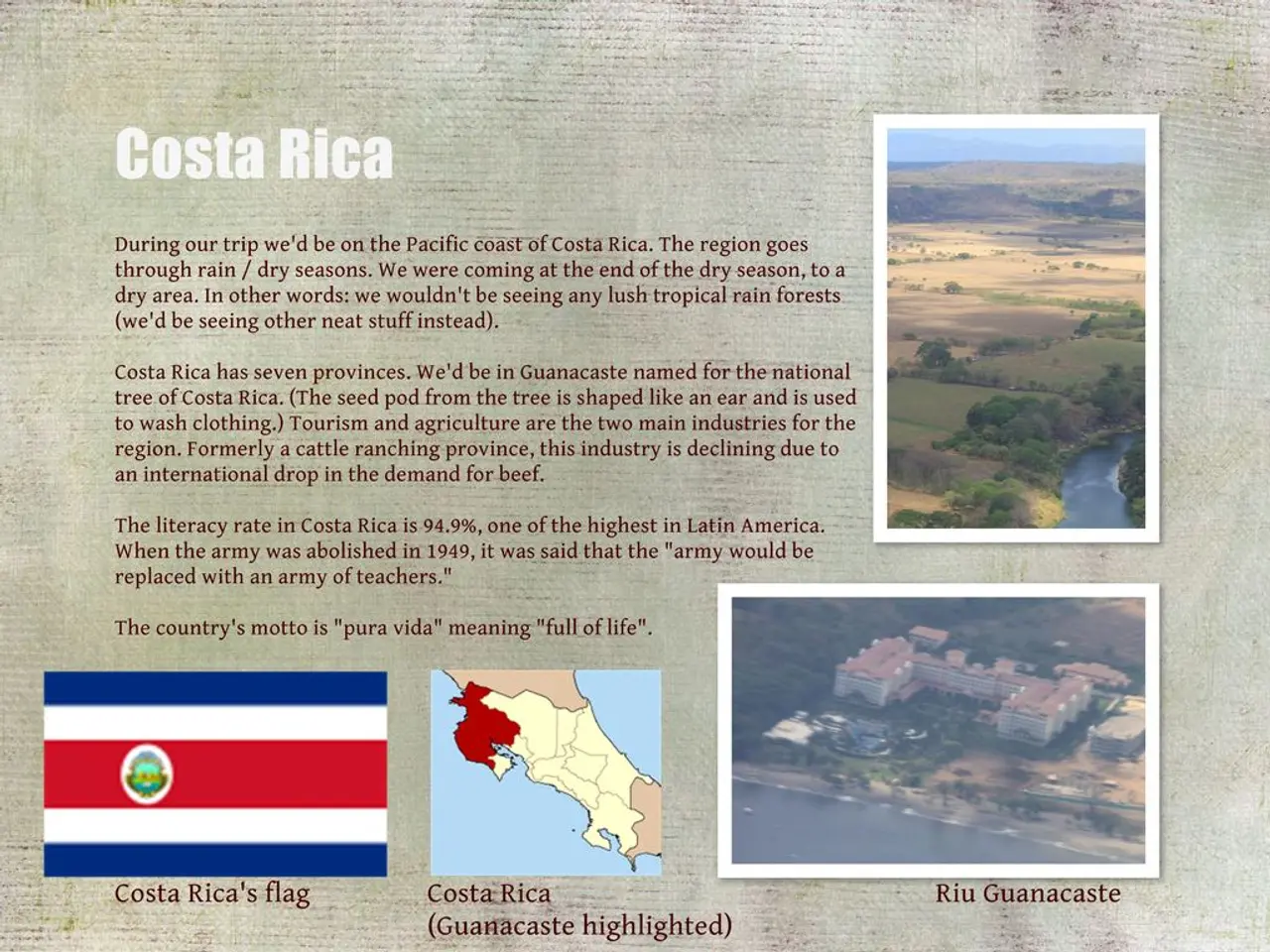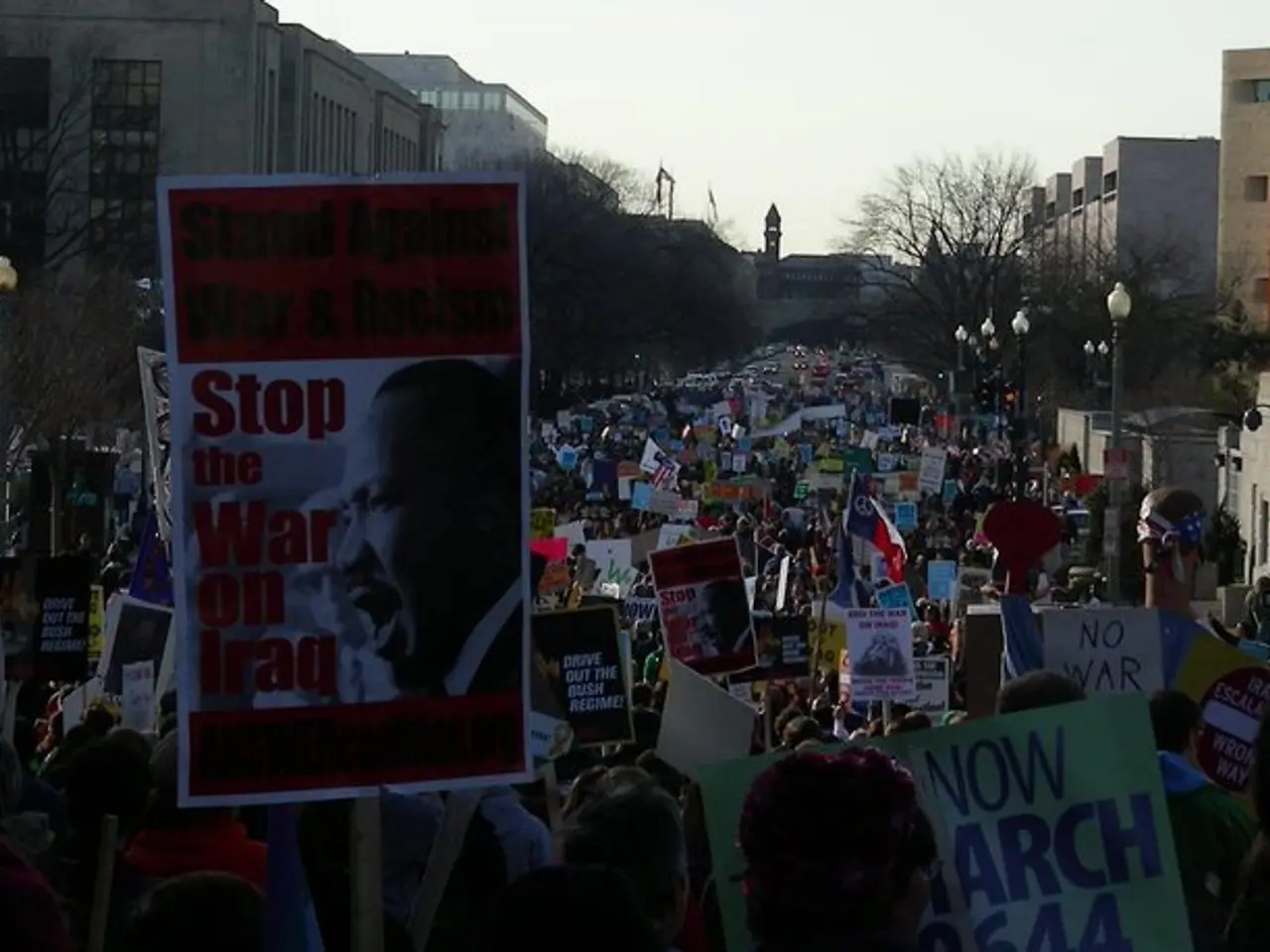British government minister denies assertions by fellow parliamentarians that recognizing Palestine is illegal
UK Government Defends Palestine Recognition Amid Legal Concerns
The UK government is navigating a contentious issue regarding the recognition of Palestine, with a group of 38 House of Lords peers raising concerns that such a move might breach international law.
In a letter to the Attorney General, these peers, including lawyers, expressed doubt over Palestine's adherence to the criteria for statehood set out in the 1933 Montevideo Convention. They argue that Palestine, with its ongoing territorial disputes and lack of a single government, may not fully satisfy the conditions for statehood, particularly regarding effective control of territory and government.
However, the UK government minister, Business Minister Gareth Thomas, has rejected these claims, stating that the UK is not signed up to the Montevideo Convention and that recognition of a Palestinian state is a political judgment. Thomas emphasized that many other countries have already recognized or are working towards recognizing the state of Palestine.
Prime Minister Keir Starmer had pledged to recognize a Palestinian state in September, contingent on Israel taking "substantive steps" toward peace. Among other conditions demanded by Starmer are the entry of more aid into Gaza, an end to land grabs in the West Bank, and a commitment to a long-term peace process.
The international legal implications of the UK's recognition of Palestine under the Montevideo Convention framework are complex. The four criteria for statehood set out in the 1933 treaty include a permanent population, a defined territory, a functioning government, and the capacity to enter into relations with other states. Despite the ongoing occupation and territorial disputes, nearly 140 countries have recognized Palestine unconditionally, interpreting Palestine as meeting these criteria sufficiently to qualify as a state.
Scholars like James Crawford and rulings by the International Court of Justice provide recognition of Palestinian statehood under international law frameworks, acknowledging the right of Palestinians to self-determination. However, caution is advised to ensure recognition supports concrete steps to end occupation rather than serving as a mere symbolic gesture that could legitimize the status quo of conflict and occupation.
In summary, the international legal implications hinge on differing interpretations of the Montevideo Convention’s strict criteria versus the realities of prolonged occupation, political judgments of state recognition, and the effects on peace efforts. The 38 House of Lords peers represent a significant legal viewpoint cautioning against recognition without full adherence to legal standards, while the UK government and many international actors emphasize political will and existing practice in recognizing Palestine as a state.
- The ongoing legal concerns about the UK recognizing Palestine involve debates over whether Palestine meets the criteria for statehood outlined in the 1933 Montevideo Convention, particularly its effective control of territory and government.
- Business Minister Gareth Thomas, in response to these concerns, asserted that the UK is not bound by the Montevideo Convention, and that recognition of a Palestinian state is a political judgment, with many other countries already recognizing or working towards recognizing Palestine.
- General news outlets have reported that the recognition of a Palestinian state is complex due to the international legal implications and the need to ensure such recognition supports concrete steps to end occupation and conflict, rather than simply legitimizing the status quo.
- Articles published in policy-and-legislation sections of news sources show that, while the 38 House of Lords peers, including lawyers, have expressed doubts about Palestine's statehood, scholars like James Crawford and rulings by the International Court of Justice have recognized Palestinian statehood under international law frameworks, highlighting the right of Palestinians to self-determination.








